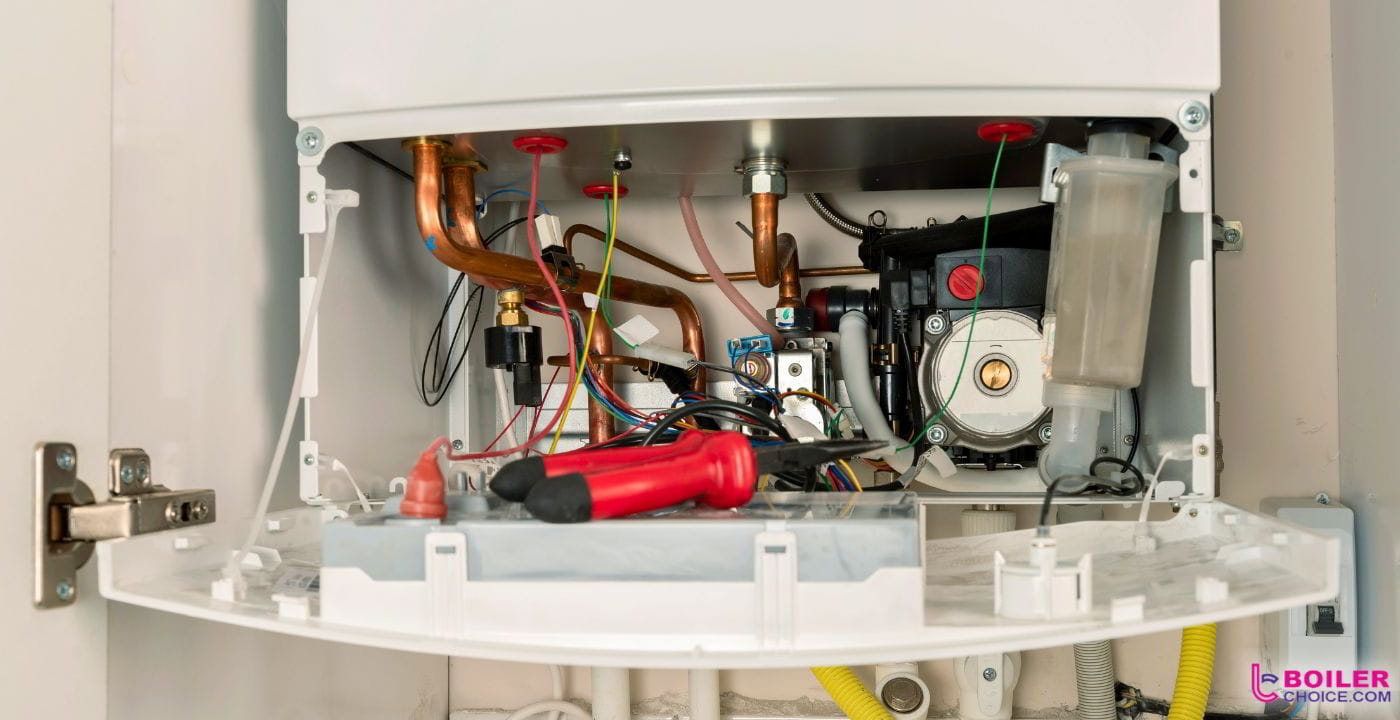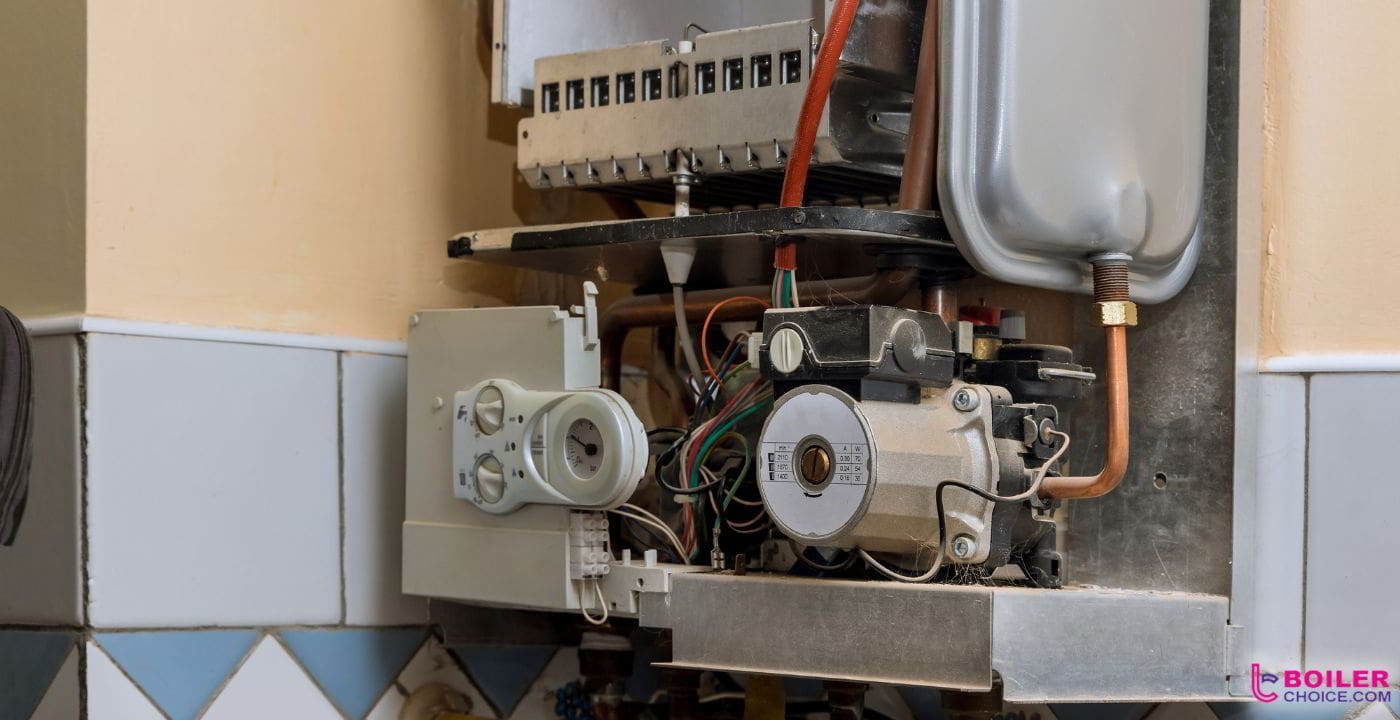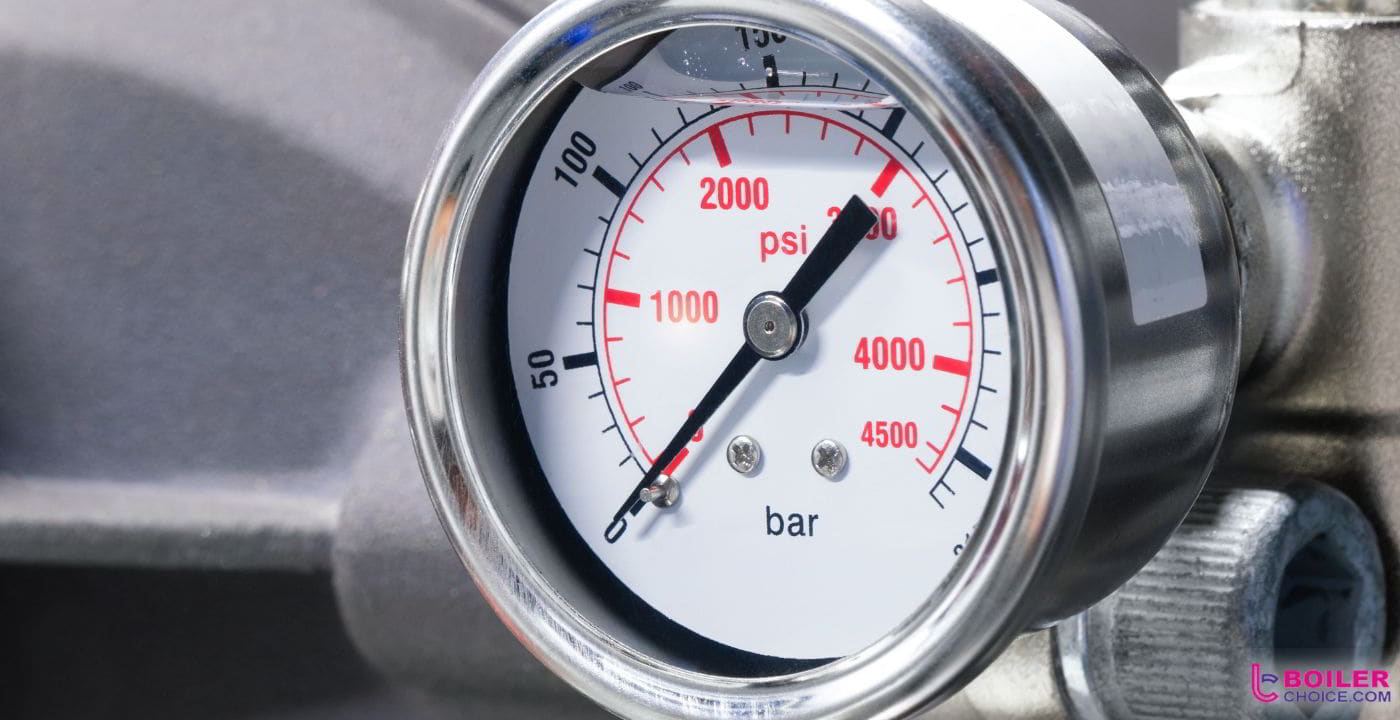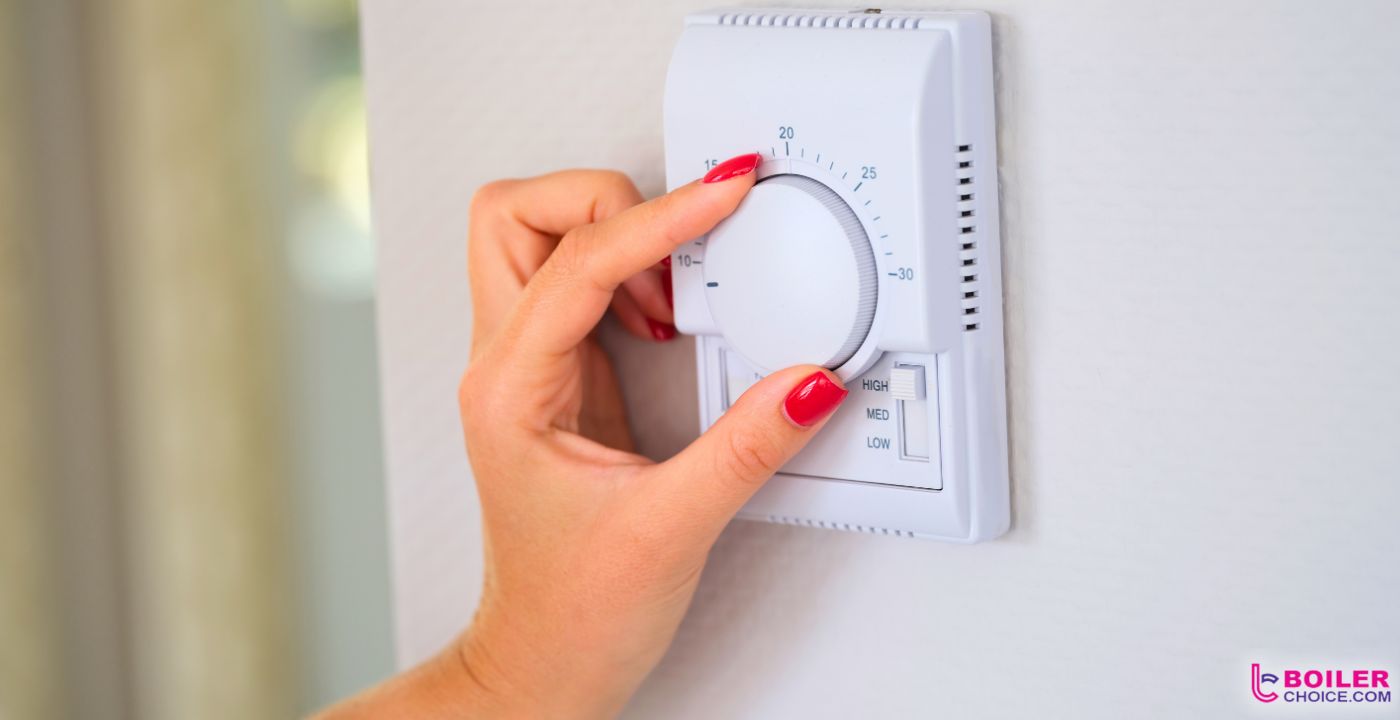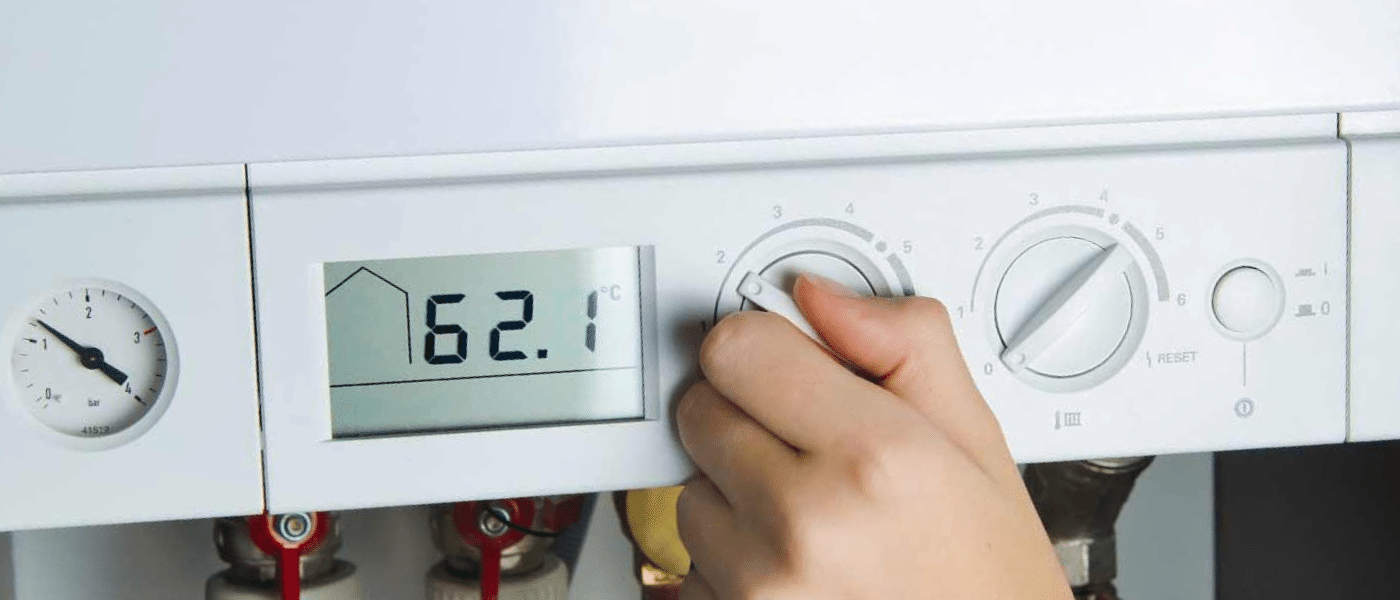
Whilst it’s normal that boiler pressure increases when the heating is on, the pressure shouldn’t keep on rising once the correct temperature has been met (or if the heating is off). If the pressure keeps rising in your boiler, then sadly it’s a sure sign that something isn’t quite right.
If you suspect your boiler is suffering from pressure problems, then read on to find out the causes and solutions….
Top Reasons for Pressure Rising in the Boiler
The Filling Loop
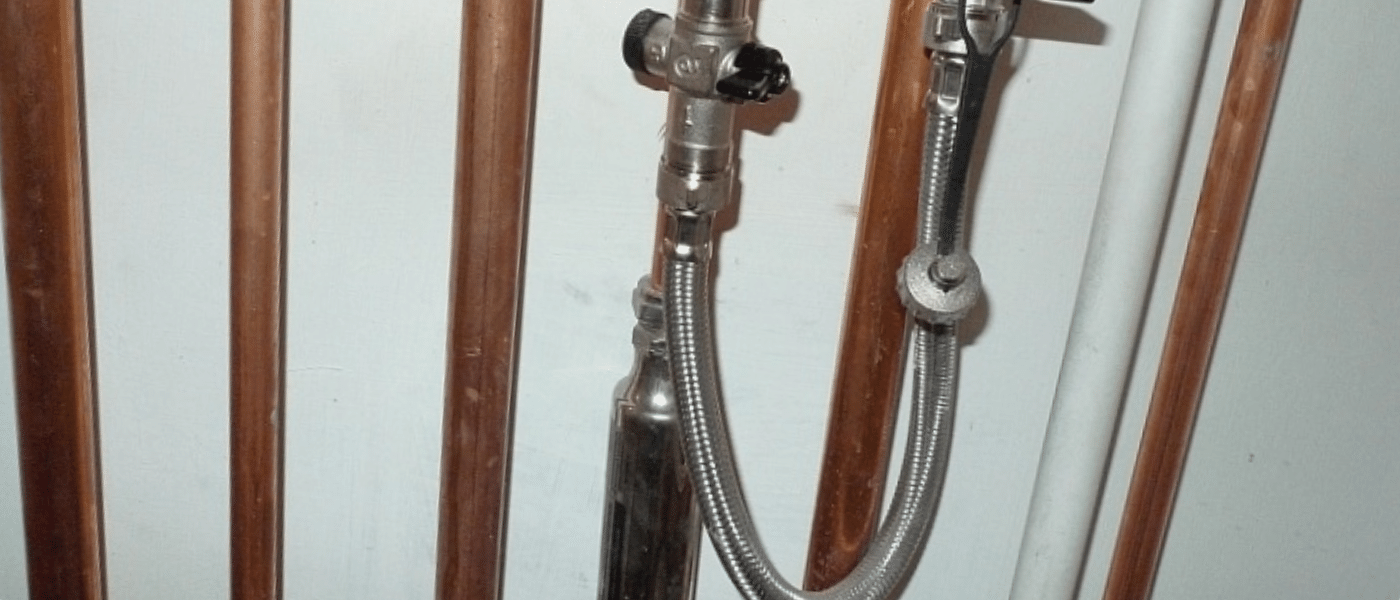
If you’ve identified that your boiler pressure is increasing, the first place you need to look to resolve the issue is the filling loop. This is a valve (sometimes two) on the bottom of the boiler which is connected by pipes to the water mains. The filling pipe is used to fill up the central heating system in one of the following scenarios:
- When the system is new
- When there is a leak
- If the radiators have just been bled
The filling loop isn’t permanently connected to the boiler and so when it’s being used to fill, it’s easy to forget about it. In turn, this means that the pressure in the boiler keeps rising until it trips the system. This will require draining and as most systems are different, we would advise you to check your boiler manual to learn how to do this.
If you’ve filled your system up, it’s possible that the valves have not been closed enough. As the mains pressure is greater than that of the boiler pressure, it will continue to slowly fill. If this is the problem, the valve could be damaged which will require a heating professional to repair it.
Faulty Pressure Gauge
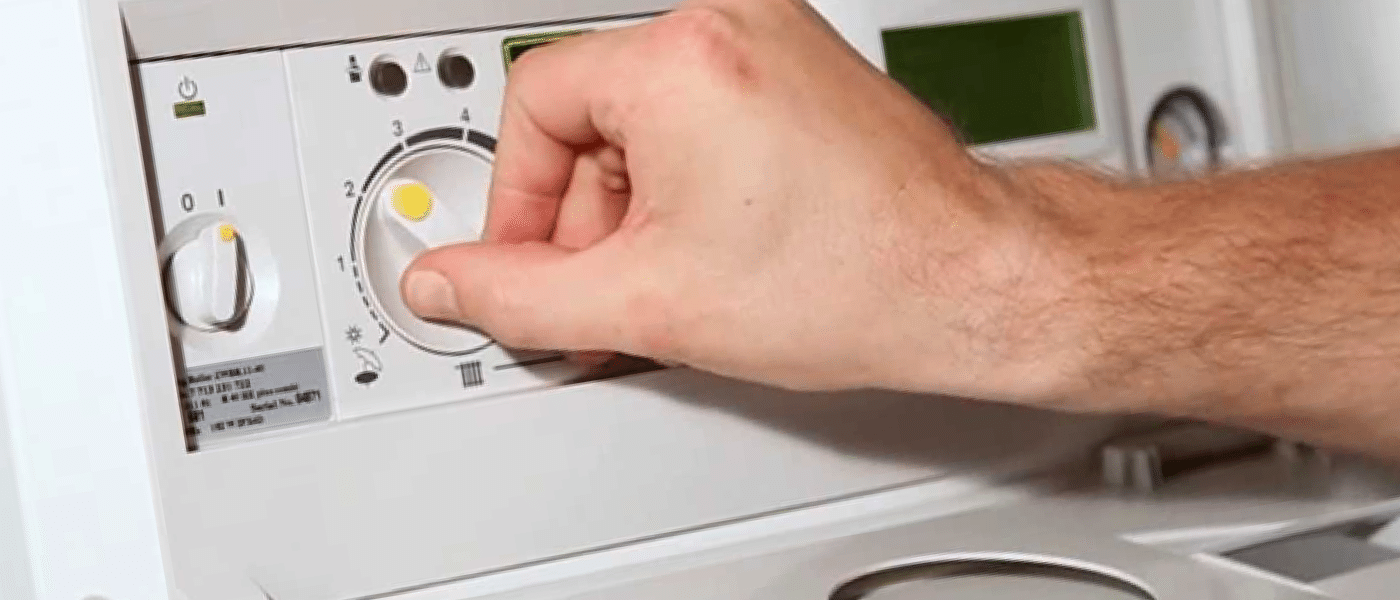
It isn’t uncommon for the pressure gauge to fail which could mean the boiler pressure is at its expected level and the gauge simply needs replacing. Check the gauge by relieving a little boiler pressure to see if this changes the reading.
If there’s no change, you’ll know that the gauge needs replacing. Although there are secondary safety measures in place to prevent dangerous levels of pressure building, we’d recommend that you turn the boiler off until the gauge is replaced.
It is possible to replace a gauge yourself as it is not technically difficult, however you may encounter some challenges – particularly if the gauge mount has become rust damaged or when it comes to purging the air from the system after fitting the gauge. For ease and efficiency, use a boiler engineer who will be able to confidently replace the gauge for you.
Build Up of Grime in the System

The build up of sludge, debris or rust in the pipework or heat exchanger will slow the flow of water down. This will then cause the boiler pressure to keep rising due to a build-up of pressurised water and then drop, causing normal flow to be reduced to a mere dribble of water.
Generally, a power flush of the system can resolve this issue but, in worst case scenarios, it can result in needing a replacement boiler.
Expansion Vessel Issues
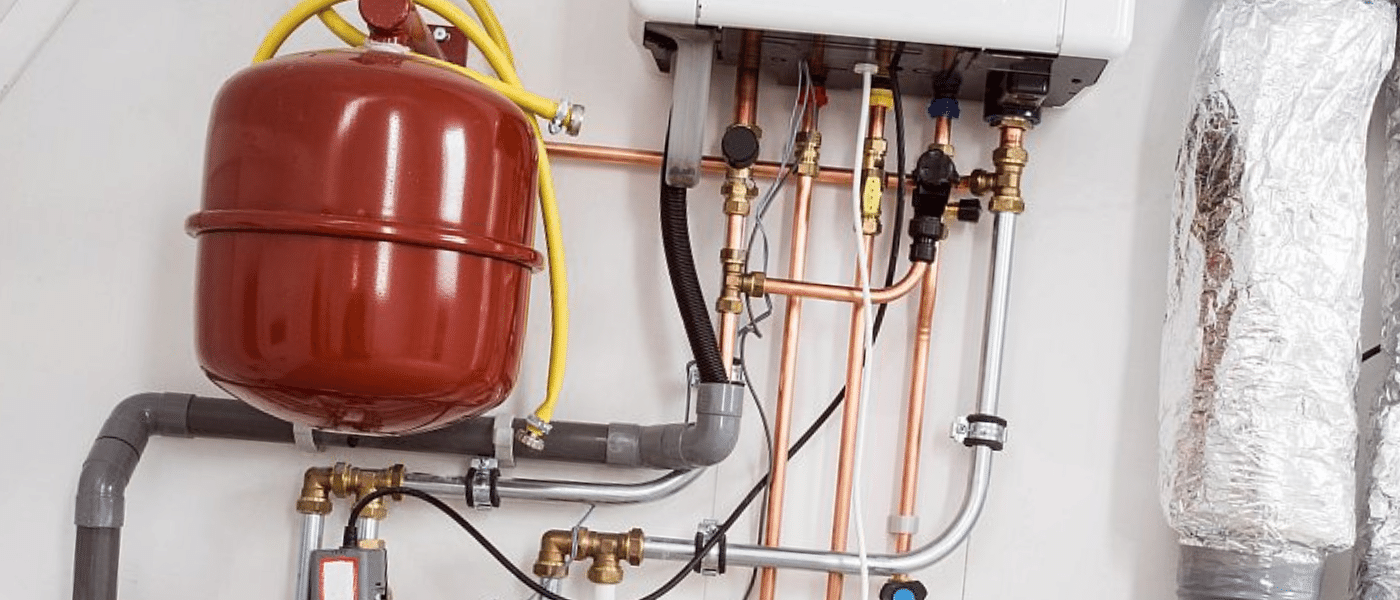
Your boiler’s expansion vessel maintains pressure throughout the system when it goes through its high pressure (hot) and low pressure (cold) stages.
If the expansion vessel becomes damaged, there is a chance of boiler pressure going up when the boiler is on with the boiler slowly losing pressure and dropping to normal levels when it’s off.
This is an integral part of the boiler and, as such, is not a DIY job; it will require a qualified technician to assess and repair or replace it.
Frequently Asked Questions
Where is the Filling Loop on My Boiler?
The filling loop is located on the bottom of your boiler and is used to re-pressurise the system. It can sometimes be permanent pipework but is often completely detachable. If your combi boiler pressure keeps rising, you may need to close off the filling loop.
How to Top Up Pressure on My Boiler?
If your boiler is losing pressure slowly and falls below 1 bar on the pressure gauge, then it will need to be topped up using the filling loop. To do this, follow this simple step-by-step:
- Turn the heating system off and allow it to cool.
- Slowly add water (which will also increase pressure) via the filling loop, by turning the screws or lever, until the pressure gauge reaches 1 bar.
- Once the pressure gauge reaches 1 bar, turn the screws (or lever) off. Ensure they are fully closed to prevent pressure from getting too high when it is back on again.
- Bleed all radiators in the house and, if necessary, top up via the filling loop again. Once all air has been removed from the radiators and the pressure gauge remains at 1 bar, the system can be turned back on.
It’s entirely normal to top up a heating system a few times per year but if you find that it’s happening more than 5 times in a year, contact an engineer to explore the possibility of a leak or fault with the boiler.
Is Low Boiler Pressure Dangerous?
You’ll be pleased to know that low boiler pressure is not dangerous. Over time, heating systems can develop small leaks, similar to a slow puncture on a tyre. Whilst it may not be noticeable that water is leaking, there will be some signs such as a low pressure reading on the gauge, and issues with heating and hot water supplies.
Equally, if you notice pressure rising in your boiler or wonder if high boiler pressure is dangerous, you will be relieved to know that it also isn’t. Heating systems are protected by a boiling pressure relief valve. This valve works to avert damage by allowing water to escape when it recognises that pressure is going up in the boiler. Valve issues can also lead to other boiler problems, like your boiler being on even when its timer is off.
How Do I Release Pressure From My Boiler?
If your combi boiler pressure keeps rising and you are looking to get pressure down on a boiler, then firstly check that your valves are tight, and that you’ve bled your radiators to release any trapped air. Unfortunately, if these checks have been carried out then it could be a more serious fault.
Get in touch with your local heating engineer who can check your pressure release valves and vents are working efficiently. The role of these vents and valves is to release excess pressure and stop boiler pressure going up and if they aren’t working correctly, they may need to be replaced.
Remember, it’s entirely normal for your combi boiler pressure to increase when the heating is on because your boiler is using fuel to heat water and so the combi boiler pressure keeps rising until the system is switched off and cooled down, at which point the pressure will stabilise.
Take the Pressure Off
Boiler pressure issues aren’t always a quick fix and if you don’t feel confident in solving the issue yourself, we would recommend contacting an engineer. In some scenarios, where pressure in the boiler keeps rising, the problem cannot be fixed and a replacement boiler is required.
In this instance, consider investing in a reputable brand such as Worcester Bosch; the initial outlay may be high, but it will be sure to last for years which certainly relieves the pressure on you!

